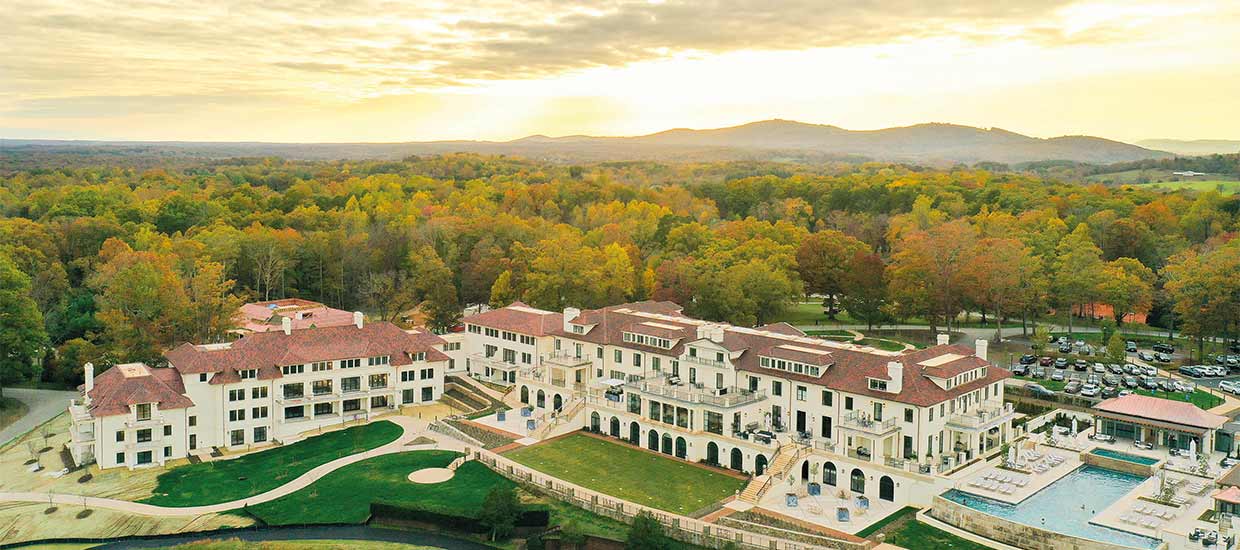Business in Madrid
November 1, 2017


It’s late afternoon when I arrive in Madrid and, heaving my case up the Metro steps, I’m welcomed by a blast of hot, musty air and the toot of a trumpet somewhere not too far away. A group of burly men in fluorescent mesh string vests stroll past, and, in the hope of getting my bearings, I follow them towards the sound of swelling chatter.
As we approach the square of Puerta del Sol, with its surrounding buildings draped in rainbow flags, it dawns on me it’s the final hours of World Pride – a week of open-air concerts, flotilla parades and street parties in the name of LGBT rights.
Back in 2008, these celebrations might have been tainted by the grim reality of the global financial crisis. Spain was hit particularly hard, prompted by the collapse of its property market, which had boomed ever since the launch of the euro in 1999. Austerity followed, along with a series of bank failures and a spike in unemployment, at its height in 2013 reaching 26 percent.
Today, the darkest days of recession are over thanks to a combination of quantitative easing, falling oil prices and growing exports from large Spanish companies such as Inditex, owner of Zara and Massimo Dutti, and infrastructure firm Ferrovial, which developed Heathrow’s T5 and new T2 and is now working on a joint venture with London’s Crossrail.
Smart government policies have also helped to attract highly coveted foreign investment – from e-commerce global giants Alibaba and Amazon, alongside digital and fintech providers such as UST Global, Ebury and Ria, among others.
The capital has done particularly well in appealing to overseas investors, drawing as much as $60 billion in foreign direct investment between 2012 and 2016. “Ever since Spain and Madrid left the economic crisis behind, investment has grown rapidly,” says Rocio Guemes, director of government agency Invest in Madrid. “In 2016, Madrid received investment worth €11.5 billion ($13.6 billion), up 11.5 percent on the previous year. This was 47.5 percent of the total investment received in Spain.”
Much of this funding has been ploughed back into real estate, financial services and construction, as investor confidence grows in the property sector. The country’s GDP is now rising steadily, up 0.7 percent at the end of last year compared with the first quarter of 2017, while unemployment has fallen to a post-crisis low of 18 percent.
Startup Hotspot
Before the effects of the extra cash could be felt, glimmers of hope began to emerge from the city’s tech scene. While the downturn ravaged Madrid’s housing and construction sectors, young entrepreneurs capitalized on the low rents and living costs. Support for budding startups began to appear in the capital city, with Spanish telecoms group Telefonica opening its global small business accelerator Wayra in 2012, which was then followed by the 2015 launch of Google’s third European outpost for entrepreneurs, offering a space for people to work and collaborate.
“Spain has always been a country of entrepreneurs, but the crisis was a wake-up call,” says Sofia Benjumea, head of Google’s Campus Madrid and co-founder of the South Summit startup conference. “Since 2012, the startup ecosystem has developed tremendously, both in Madrid and Barcelona, along with new hubs like Valencia and Malaga.”
At that time, Google Campus was present only in London and Tel Aviv (it now has hubs in Warsaw, Seoul and Sao Paulo), so why did it choose Madrid next? “The answer is, why not?” Benjumea says. “Spaniards are not the best at selling themselves, but we have a high level of engineers, a great quality of life, access to talent, and our startups have received interest from a lot of major venture capital funds.”
Now in its third year, Campus Madrid has amassed 32,000 members from across Spain, Europe, the US and Latin America, all of whom can use it to work, meet, and host demo days and workshops, for free. Housed in a 19th-century battery factory, the space is bright and airy with colorful murals, a café and clusters of Scandi furniture where pairs of 20- and 30-somethings huddle over their laptops.
The top floor is reserved for late-stage startups that have gained residency – there are currently seven of these, from a grocery shopping and delivery app to one that monitors your fertility if you are trying to conceive. Since opening, Campus startups have created 2,500 jobs and raised nearly $44 million in funding.
Fostering Innovation
Last year, the European Commission oversaw the launch of a pilot initiative called Madrid Startup House, which is working to establish a one-stop-shop to provide support and guidance for fledgling enterprises. It has been mobilized by communications agency Hugin and Munin and investment facilitator Socios Inversores, whose directors established the project.
Asier Basterretxea-Gomez and Victor Teodosio co-founded Madrid Startup House in 2016. “While we know there is a lot of growth and investment, Madrid’s startup scene is dispersed – you have something here and there, instead of a nice, thick gravy where you can see who is part of the ecosystem and community,” Basterretxea-Gomez says.
The foundation is working to integrate these parts, as well as to create useful tools such as a startup community map, an events platform and advice on funding. It has also recently joined Startup City Alliance Europe (SCALE) – an alliance of 19 startup organizations in 11 cities aimed at creating a broad ecosystem while offering support to firms that are ready to scale up and leverage their European neighbors. Members include Amsterdam, Helsinki, Paris, Rome and London.
Young startups with a great idea but no cash are in luck. One of the foundation’s key programs aims to improve the often demoralizing and restrictive process of finding investors. Basterretxea-Gomez says that they are creating an online stage where the country’s most popular crowd-funding platforms can facilitate their projects, tap into capital and get in touch with private investors.
“This has uncovered a huge amount of talent,” he adds. “We presumed this existed in Spain and Madrid, but it was hidden because new startups couldn’t find ways to fund themselves.”
But it isn’t only startups that have found fertile ground in Madrid’s tech sector. Since launching in Spain in 2011, Amazon has opened new locations across the country each year and in 2016 unveiled a technology center in the capital. At the launch, Terry Hanold, vice-president of technology for Amazon EU, said: “Over the past five years we have proven that Spain is an ideal place to innovate. We have found professionals with incredible talent.”
Andreu Castellano, corporate communications manager at Amazon Spain, says: “This year, Amazon will create more than 600 new fixed jobs in Spain, which means that in just one year, its workforce will increase by more than 50 percent.”
The group’s Spanish headquarters plans to relocate to a larger 130,000-square-foot space in downtown Madrid with capacity for more than 1,000 staff. The new tech hub will also move here, along with the first team outside of the US that develops software for Amazon Business, the group’s B2B marketplace.
A new Amazon logistics center is also due to open next year in Illescas, Toledo, 25 miles south of the capital, and is expected to create more than 900 jobs in its first three years.
Tourism Trends
Despite growing security concerns across the continent, tourism here remains strong, with just over nine million visitors in 2016, up almost 2 percent over the previous year. Brands such as Hyatt, W and Four Seasons are set to open hotels in the next two years, while recent city-center launches include properties from the likes of Only You, Melia and NH Hotels.
Monica Torres is general manager of the 83-room NH Collection Palacio de Tepa, which is housed in an 19th-century palace that was once home to the last viceroy of Spain in Mexico. “The next few years are going to be quite challenging with the opening of Four Seasons and W nearby, so this area is going to be a hot spot,” she says.
Meanwhile, an ambitious regeneration project in northern Madrid is likely to up the ante for many businesses when it eventually sees the light of day. Designed to rival financial hubs such as London’s Canary Wharf and La Défense in Paris, the Madrid Nuevo Norte project plans to transform 662 acres of industrial wasteland into a business zone also including homes, parks and a metro extension.
While this should be cause for excitement, no one is holding their breath for a timely delivery – the project was first announced in 1994 and has been held up by years of bureaucratic and political wrangling. This summer, a revised version of the project was finally approved and when work begins late next year it will be one of the largest urban regeneration projects in Europe, with proposed funding in the region of $7 billion.
“We have studied other projects in Europe to decide which features to replicate and errors to avoid,” says a project spokesperson. “Several studies indicate that there is a lack of high-quality offices here. We want big companies to choose Madrid as their headquarters. All companies will be welcome.” Although in its early stages, the project has allocated 368 of the 662 acres to commercial use, and expects to build close to 11,000 new homes.
Invest in Madrid’s Rocio Guemes says that the Madrid Nuevo Norte development will be one of the most advanced business zones in Europe. “We are perceiving interest in the project from foreign companies and once it is launched there will be excellent opportunities for investment,” she says. Having weathered the storm, it’s clear that Madrid is now open for business.
By Marisa Cannon




